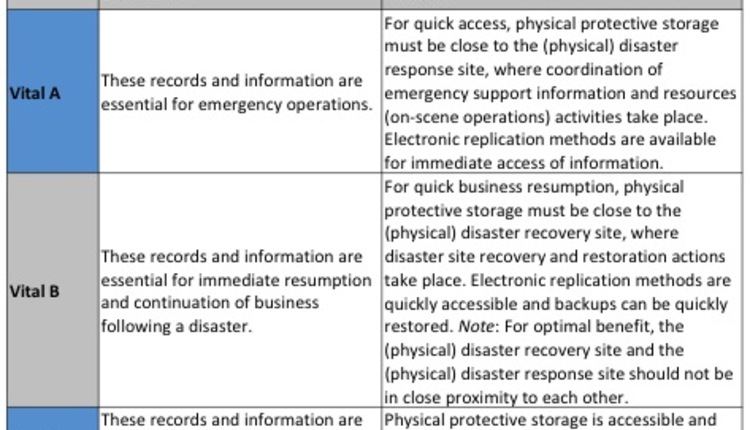Organizations depend on information to manage day-to-day operations, comply with regulations, gauge financial performance and monitor strategic initiatives. This critical information resides in the organization's business records.
Increasingly, organizations must defend their recordkeeping practices to regulatory and other oversight organizations and respond to discovery demands. Excessive discovery costs for records that should have been disposed, regulatory sanctions against organizations that cannot produce required documentation or poor business decisions based on incorrect or incomplete information are all risks that can be managed by effective information governance processes.
ARMA International's eight GARP principles can help you to establish and monitor an effective information governance program in your organization.
- Principle of Accountability: An organization shall assign a senior executive who will oversee a recordkeeping program and delegate responsibility to appropriate individuals, adopt policies and procedures to guide personnel and ensure auditability.
- Principle of Transparency: The processes and activities of an organization's recordkeeping program shall be documented in an understandable manner and be available to all personnel and appropriate interested parties.
- Principle of Integrity: A recordkeeping program shall be constructed so the records and information generated or managed by or for the organization have a reasonable and suitable guarantee of authenticity and reliability.
- Principle of Protection: A recordkeeping program shall be constructed to ensure a reasonable level of protection to records and information that are private, confidential, privileged, secret or essential to business continuity.
- Principle of Compliance: The recordkeeping program shall be constructed to comply with applicable laws and other binding authorities, as well as the organization's policies.
- Principle of Availability: An organization shall maintain records in a manner that ensures timely, efficient and accurate retrieval of needed information.
- Principle of Retention: An organization shall maintain its records and information for an appropriate time, taking into account legal, regulatory, fiscal, operational and historical requirements.
- Principle of Disposition: An organization shall provide secure and appropriate disposition for records that are no longer required to be maintained by applicable laws and the organization's policies.
MARILYN BIER is the executive director for ARMA International, a not-for-profit professional association and the authority on managing records and information, and oversees the development and implementation of all headquarter projects. Additional information for each of the GARP principles is available at www.arma.org/garp.

















